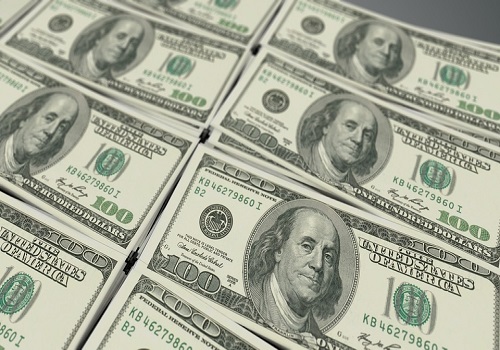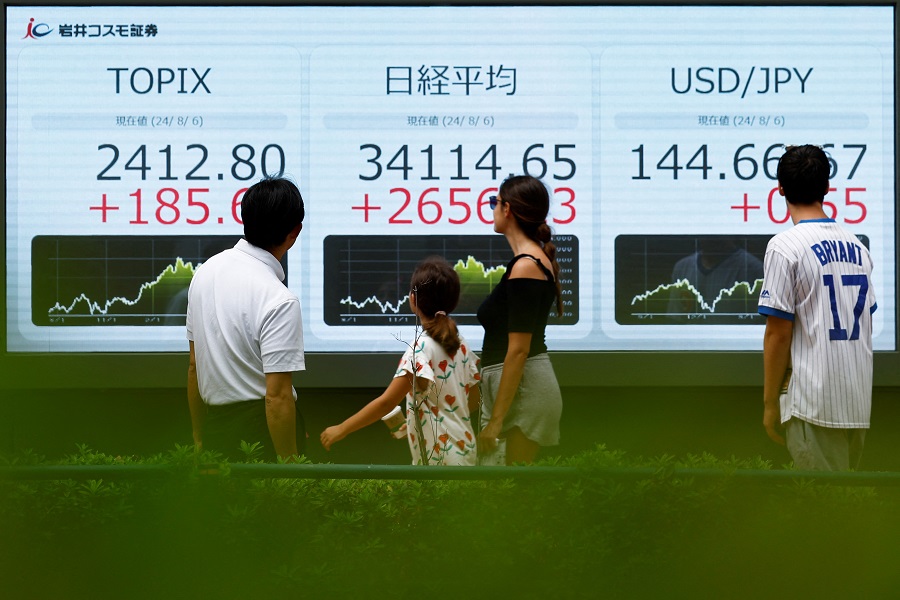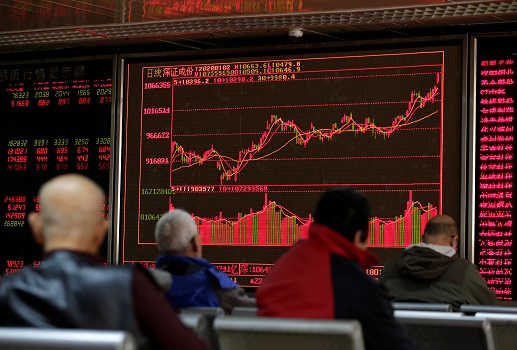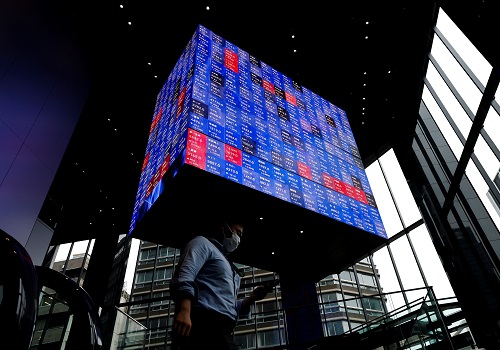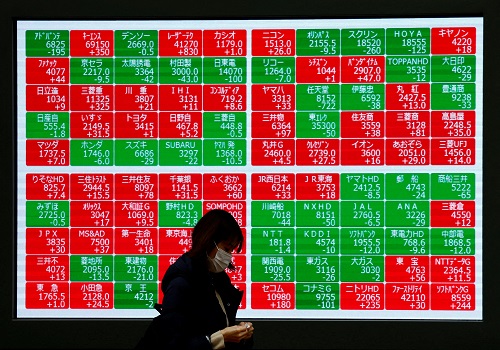Asia stocks hang onto weekly gains as yields, oil fall
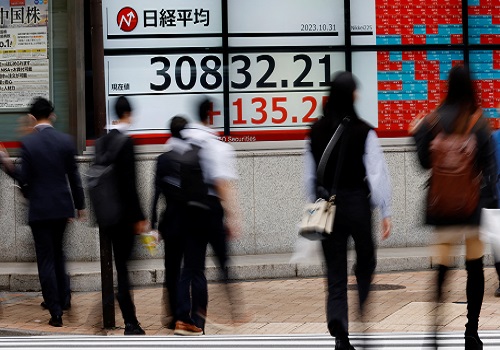
Follow us Now on Telegram ! Get daily 10 - 12 important updates on Business, Finance and Investment. Join our Telegram Channel
Asian shares took a breather on Friday as a batch of softer U.S. economic data took some of the steam out of Wall Street, but also boosted bonds in a big way while slugging oil prices in a boon for the inflation outlook.
MSCI's broadest index of Asia-Pacific shares outside Japan eased 0.4% from a two-month high, but still up 3.1% so far for the week in its best performance since July.
Both Brent and U.S. crude slid almost 5% on Thursday to four-month lows in a move that was blamed on economic and supply concerns, though technical selling likely played a part when the $80 bulwark broke. [O/R]
Dealers suspected algorithmic and trend-following funds drove the speculative sell off with much of the losses coming in just a single hour of trade.
Brent was last down 10 cents at $77.36 a barrel, and a world away from the $97.69 top hit in late September, while U.S. crude eased 7 cents to $72.83.
Whatever the cause, the rout should put added downward pressure on consumer prices across the globe and reinforce expectations of policy easing next year.
Adding to the disinflationary theme was commentary from Walmart executives that costs were "more in check" and they were planning on cutting prices for the holiday season.
Equity investors were not as impressed with the idea of margin compression and knocked Walmart shares down 8%, while a drop in energy stocks dragged on the S&P 500.
Early Friday, S&P 500 futures were all but flat, as were Nasdaq futures. EUROSTOXX 50 futures gained 0.3% and FTSE futures 0.2%.
Japan's Nikkei added 0.2%, to be 2.8% firmer for the week, helped by reassurance from the Bank of Japan that it was sticking with its super loose policy.
Chinese blue chips were a fraction lower, having missed on the general rally so far this week.
Sentiment in Asia was supported by the apparent easing of tensions between the United States and China, with the Chinese press lauding the meeting between President Xi Jinping and President Joe Biden.
Japanese Prime Minister Fumio Kishida was also set to hold talk with Xi at the APEC summit.
COUNTING ON CUTS
Bond markets were still cheering this week's benign U.S. inflation report, with futures now pricing in almost zero chance of another rate hike from the Federal Reserve and a 34% probability it might ease as early as March.
The market is pricing in 98 basis points of cuts next year, compared with 73 basis points a week ago.
"With labor market activity slowing and further disinflation expected, we see the Fed on hold before starting to lower rates in the second half of 2024 to avoid a recession," wrote analysts at JPMorgan in a note.
"We forecast the policy rate to drop 100 basis points in 2H24 to end the year at 4.5%, before settling on hold at 3.5% by 1Q25."
Treasury investors were looking to price in a little of that right now with yields on two-year treasuries down a whopping 21 basis points for the week at 4.85%. That was their best weekly performance since March.
Ten-year note yields stood at 4.44%, having fallen 18 basis points for the week so far, a rousing rally from the 5.02% high hit just a month ago.
The sea change in market pricing for the Fed has left the dollar looking soggy, with the euro up at $1.0853 and holding gains of 1.6% for the week so far. [FRX/]
The dollar even lost ground to the yen, easing to 150.67 yen and away from a 151.92 peak hit early in the week. It fared better against commodity-linked currencies such as the Canadian dollar, which were hampered by the slide in oil.
The drop in bond yields proved bullish for gold, which nudged up to $1,982 an ounce. [GOL/]
















